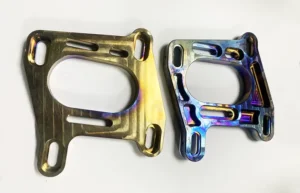
How to become a CNC machine programmer?
How to Become a CNC Machine Programmer
If you are interested in pursuing a career as a CNC machine programmer, you have come to the right place. In this article, we will discuss the essential steps and skills required to become a successful CNC machine programmer.
Whether you are just starting out in the manufacturing industry or looking to advance your career, this guide will provide you with valuable insights and tips to help you achieve your goals.
Educational Background
One of the first steps to becoming a CNC machine programmer is to obtain a strong educational background. Most employers require candidates to have at least a high school diploma or equivalent.
However, having a degree in engineering or a related field can significantly enhance your job prospects in this competitive industry.
Additionally, taking courses in computer programming, mathematics, and CAD/CAM software can also be beneficial in developing the technical skills required for CNC machine programming.
Many vocational schools and community colleges offer programs specifically tailored to CNC programming, which can provide you with the hands-on training and experience needed to succeed in this field.
Technical Skills
As a CNC machine programmer, you will be responsible for writing and editing programs that control the operation of CNC machines.
Therefore, having strong technical skills is essential for success in this role. Some of the key technical skills required for CNC programming include:
- Proficiency in programming languages such as G-code and M-code
- Knowledge of CAD/CAM software
- Ability to read and interpret blueprints and technical drawings
- Understanding of machining processes and tooling
- Familiarity with CNC machine operation and maintenance
By honing these technical skills through education and hands-on experience, you can position yourself as a qualified candidate for CNC machine programming roles.
Hands-On Experience
While having a strong educational background and technical skills is essential, gaining hands-on experience is also crucial for becoming a successful CNC machine programmer.
Many employers prefer candidates who have practical experience working with CNC machines and programming software.
One way to gain hands-on experience is to participate in internship programs or apprenticeships with manufacturing companies.
These opportunities can provide you with valuable on-the-job training and insight into the day-to-day responsibilities of a CNC machine programmer.
Additionally, practicing programming tasks on your own time using simulation software or online resources can help you sharpen your skills and demonstrate your proficiency to potential employers.
Continuous Learning
The field of CNC machine programming is constantly evolving, with new technologies and software updates being introduced regularly.
Therefore, it is essential for CNC programmers to engage in continuous learning to stay current with industry trends and advancements.
Attending workshops, seminars, and industry conferences can provide you with valuable networking opportunities and insights into the latest developments in CNC programming.
Additionally, pursuing certifications in specific programming languages or software platforms can help you demonstrate your expertise and enhance your credibility as a CNC machine programmer.
Conclusion
In conclusion, becoming a CNC machine programmer requires a combination of education, technical skills, hands-on experience, and continuous learning.
By following the steps outlined in this article and staying committed to your professional development, you can position yourself for a successful career in CNC programming.
Remember to stay proactive in seeking out opportunities for growth and improvement, and never stop learning and expanding your skills as a CNC machine programmer.
With dedication and effort, you can achieve your goal of becoming a proficient and sought-after professional in the manufacturing industry.




1 thought on “How to become a CNC machine programmer?”
It’s like talking to a smart friend in the industry.